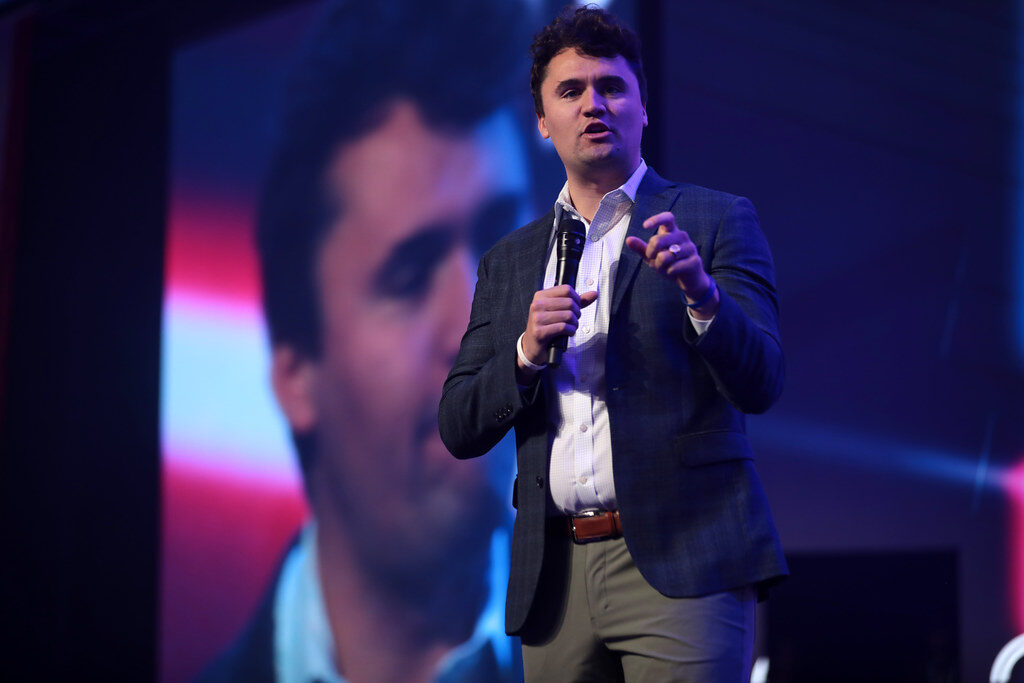In the landscape of American political commentary and activism, few figures have been as polarizing as Charlie Kirk. Rising to prominence at a young age, Kirk has built a substantial platform through his organization, Turning Point USA, and his media presence. While his supporters hail him as a champion of conservative values and youth engagement, critics argue that Kirk’s career is emblematic of a broader trend of division fueled by hate and misinformation. This article delves into how Charlie Kirk has spent much of his life amplifying divisive rhetoric, spreading misinformation, and profiting handsomely from it.
Early Life and Rise to Prominence
Charlie Kirk was born in 1993 and quickly became involved in conservative activism. His early work centered on mobilizing young conservatives on college campuses, a niche that was less developed compared to progressive youth movements. In 2012, at just 18 years old, Kirk founded Turning Point USA (TPUSA) with the goal of promoting conservative values among young people.
Turning Point USA rapidly grew into a significant force in American conservative politics, known for its aggressive social media campaigns and high-profile events. Kirk’s charisma and ability to engage with youth audiences helped him become a prominent voice in conservative circles.
The Strategy of Division
Critics of Kirk argue that his success is built on a strategy of division. Through Turning Point USA and his personal brand, Kirk has often employed rhetoric that pits “us” versus “them,” framing political and social debates in stark, antagonistic terms. This approach tends to simplify complex issues into binary conflicts, often demonizing political opponents as enemies rather than fellow citizens with differing views.
Examples of divisive tactics include:
- Targeting marginalized groups: Kirk has frequently been accused of using language that marginalizes immigrants, people of color, LGBTQ+ individuals, and other minority groups, framing them as threats to traditional American values.
- Fueling culture wars: Kirk’s messaging often centers on hot-button cultural issues such as race, gender, and religion, deliberately stoking tensions to energize his base.
- Undermining trust in institutions: By questioning the legitimacy of the media, education system, and electoral processes, Kirk contributes to a climate of distrust and polarization.
Misinformation and Its Impact
Alongside divisive rhetoric, Kirk has been criticized for spreading misinformation and conspiracy theories. In an era where social media amplifies rapid information dissemination, false or misleading claims can have significant consequences. Some notable instances include:
- Election misinformation: Kirk has promoted unfounded claims about voter fraud and election integrity, contributing to public doubt about democratic processes.
- COVID-19 misinformation: He has shared misleading information about the pandemic, vaccines, and public health measures, undermining efforts to control the virus.
- Distorted historical narratives: Kirk’s promotion of revisionist interpretations of American history often downplays systemic racism and inequality, complicating efforts toward social justice.
Financial Success from Division
Charlie Kirk’s ability to monetize his divisive approach has been substantial. Turning Point USA has raised millions of dollars through donations, merchandise sales, and sponsorships. Kirk himself has capitalized on his fame through book deals, speaking engagements, and media appearances.
The organization’s funding comes from a mix of small donors and large conservative funders, enabling it to sustain and expand its operations. The revenue generated has allowed TPUSA to maintain a robust presence on campuses and online, perpetuating its divisive messaging.
Broader Implications for Society
The phenomenon represented by Charlie Kirk is part of a larger trend in American politics, where polarization and the spread of misinformation have become entrenched. The financial incentives tied to controversy encourage figures like Kirk to continue exploiting societal divisions rather than seeking common ground.
This dynamic poses challenges for democratic discourse, social cohesion, and the ability to address pressing national issues collectively. Recognizing and critically examining the role of influential figures in fostering division is essential for fostering a healthier political environment.
Charlie Kirk’s career illustrates how hate and misinformation can be weaponized for political and financial gain. While he has undoubtedly mobilized a segment of the population, the cost has been increased polarization and the erosion of trust in democratic institutions. Understanding the mechanisms behind such figures’ rise and influence is crucial for developing strategies to promote unity, truth, and constructive dialogue in society.


No responses yet